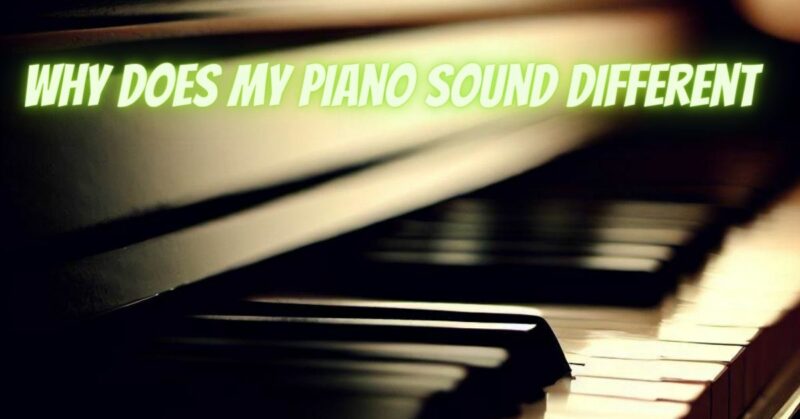As a pianist, it can be disconcerting when your piano suddenly sounds different than what you are accustomed to. The instrument’s unique tonal qualities and characteristics are what make it so special. When it sounds different, whether subtly or noticeably, it can be challenging to pinpoint the exact cause. In this article, we will explore some common reasons why your piano may sound different and provide insights into how you can address the issue.
- Environmental Factors:
a. Changes in temperature and humidity can significantly affect the sound of a piano.
b. Fluctuations in humidity levels can cause the piano’s wooden components to expand or contract, resulting in changes in tone. Additionally, extreme temperature variations can impact the piano’s overall sound. Ensure that your piano is placed in a stable environment with proper temperature and humidity control.
- Aging and Wear:
a. Over time, pianos undergo natural wear and tear, which can affect their sound.
b. Components such as hammers, strings, and felt parts can wear down, leading to changes in tone and resonance. Regular maintenance and occasional reconditioning by a skilled piano technician can help address these issues and restore the piano’s sound to its optimal condition.
- Voicing Changes:
a. Voicing refers to the adjustment of the hammers to achieve the desired tonal characteristics.
b. If the hammers are not regularly voiced or if they have worn unevenly, the piano’s sound can change. Engage the services of a professional piano technician who can evaluate the voicing and make necessary adjustments to restore the piano’s original tonal qualities.
- Regulation Issues:
a. Piano regulation involves the adjustment of various mechanical parts to ensure proper touch and responsiveness.
b. Over time, the piano’s regulation can become compromised, resulting in inconsistencies in key response and touch. A qualified piano technician can assess and address regulation issues, ensuring that the piano plays as intended.
- Acoustic Changes in the Room:
a. The room in which the piano is located plays a crucial role in its sound.
b. Changes in furniture, flooring, or room layout can impact the piano’s sound projection and resonance. Experiment with repositioning the piano or consider adding acoustic treatments to optimize the room’s acoustics.
Conclusion:
A change in your piano’s sound can be attributed to various factors, including environmental conditions, aging and wear, voicing changes, regulation issues, and acoustic changes in the room. By understanding these potential causes, you can take appropriate measures to address them and restore your piano’s familiar and beloved sound. Regular maintenance, occasional servicing by a professional piano technician, and creating an optimal environment for your instrument will help ensure that your piano continues to produce its unique and enchanting tones for years to come.


